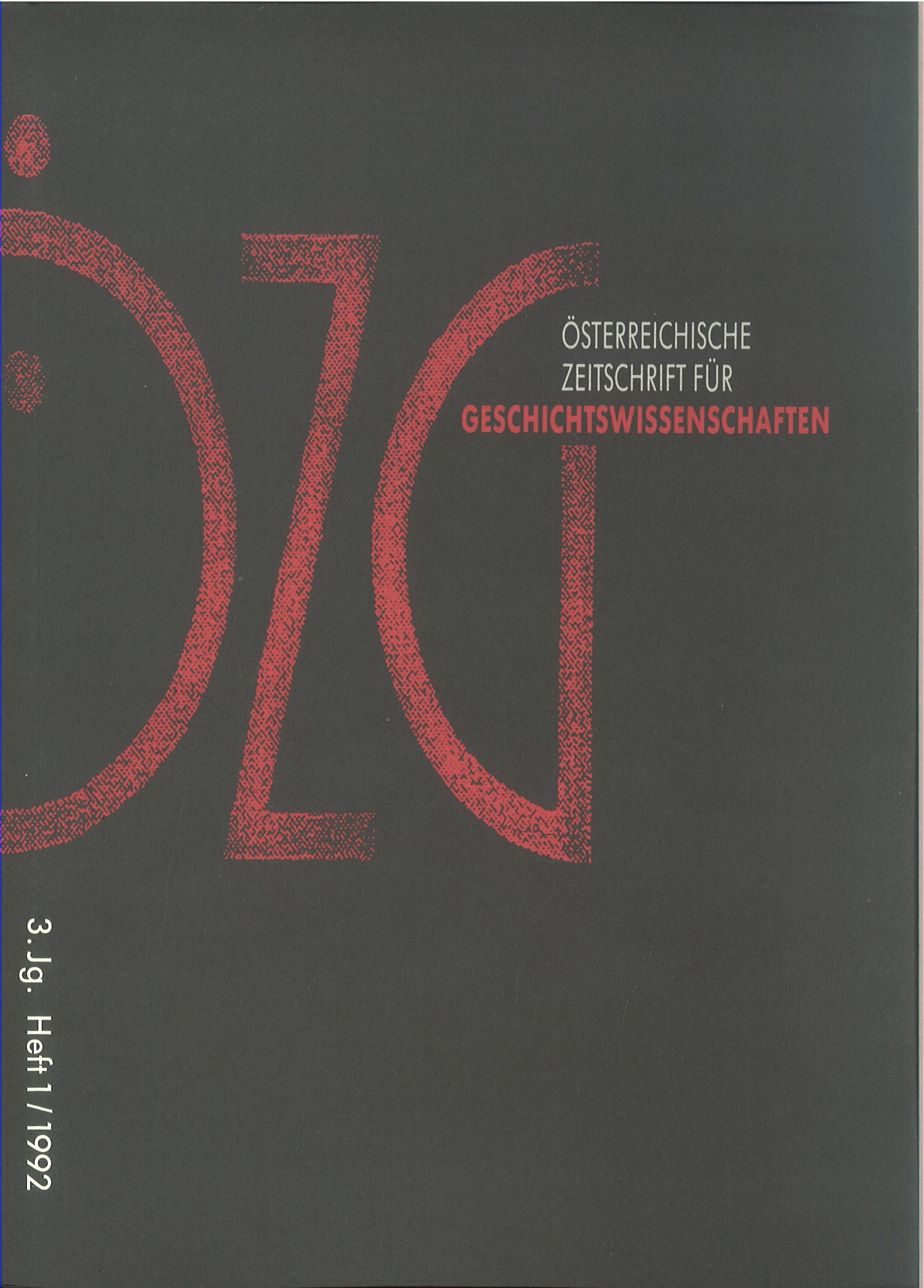Cultural History in Search of lts Meaning
Überlegungen zum Einfluß poststrukturalistischer Theorienbildung auf moderne Kulturgeschichtsschreibung
DOI:
https://doi.org/10.25365/oezg-1992-3-1-2Abstract
Reviewing the widening of meaning of the term ,culture' during the last two centuries, the author argues for a new approach to cultural history, regarding the culture of a society not as a separate body of moral and intellectual activities but as a whole way of life, as a mode of interpreting experience. In such an understanding the object of cultural history is the symbolical order underlying the human potential of making experiences. The basis of this symbolical order are signs, which constitute the fundamental material of culture. The meanings ascribed to these signs are salient but secondary, coming only into existence through and being modified by the use of material signs. The historian can open up the potential of the cultural discourses of the past because the symbolical order does not produce a single, coherent, transparent and uniform system of meaning; rather it has to be regarded as the site of power-struggles over the production of socially significant meanings in the context of social relations. That ist why cultural history has to include the history of the reception of cultural expressions and is thus germane to understanding dispositions of power in the past because it can shed light on processes of marginalisation and domination.


